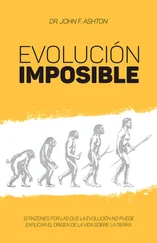John Ashton - Curious Creatures in Zoology
Здесь есть возможность читать онлайн «John Ashton - Curious Creatures in Zoology» — ознакомительный отрывок электронной книги совершенно бесплатно, а после прочтения отрывка купить полную версию. В некоторых случаях можно слушать аудио, скачать через торрент в формате fb2 и присутствует краткое содержание. Жанр: Природа и животные, foreign_antique, foreign_prose, на английском языке. Описание произведения, (предисловие) а так же отзывы посетителей доступны на портале библиотеки ЛибКат.
- Название:Curious Creatures in Zoology
- Автор:
- Жанр:
- Год:неизвестен
- ISBN:нет данных
- Рейтинг книги:4 / 5. Голосов: 1
-
Избранное:Добавить в избранное
- Отзывы:
-
Ваша оценка:
- 80
- 1
- 2
- 3
- 4
- 5
Curious Creatures in Zoology: краткое содержание, описание и аннотация
Предлагаем к чтению аннотацию, описание, краткое содержание или предисловие (зависит от того, что написал сам автор книги «Curious Creatures in Zoology»). Если вы не нашли необходимую информацию о книге — напишите в комментариях, мы постараемся отыскать её.
Curious Creatures in Zoology — читать онлайн ознакомительный отрывок
Ниже представлен текст книги, разбитый по страницам. Система сохранения места последней прочитанной страницы, позволяет с удобством читать онлайн бесплатно книгу «Curious Creatures in Zoology», без необходимости каждый раз заново искать на чём Вы остановились. Поставьте закладку, и сможете в любой момент перейти на страницу, на которой закончили чтение.
Интервал:
Закладка:
This shows that the Troglodytæ of Ethiopia had some commercial energy, and they did a good trade in myrrh and other condiments. Pliny says that the Troglodytæ traded among other things in cinnamon. They “after buying it of their neighbours, carry it over vast tracts of sea, upon rafts, which are neither steered by rudder nor drawn or impelled by oars or sails. Nor yet are they aided by any of the resources of art, man alone, and his daring boldness, standing in the place of all these; in addition to which, they choose the winter season, about the time of the equinox, for their voyage, for then a south-easterly wind is blowing; these winds guide them in a straight course from gulf to gulf, and after they have doubled the promontory of Arabia, the north-east wind carries them to a port of the Gebanitæ, known by the name of Ocilia. Hence it is that they steer for this port in preference, and they say that it is almost five years before the merchants are able to effect their return, while many perish on the voyage. In return for their wares, they bring back articles of glass and copper, cloths, buckles, bracelets, and necklaces; hence it is that this traffic depends more particularly upon the capricious tastes and inclinations of the female sex.”
This shows that some, at least, of the Troglodytes had a commercial spirit, and were in a comparative state of civilisation; in fact the latter is thoroughly proved, when, a little later on, Pliny speaks of Myrobalanum, “Among these various kinds, that which is sent from the country of the Troglodytæ is the worst of all,” thus showing that they had reached the civilised pitch of adulteration! There are also several notices of peculiarities connected with this people, which deserve a passing glance. They had turtles with horns (or more probably fore-feet) which resembled the branches of a lyre; with these they swam. These were in all likelihood the tortoise-shell turtles, for they called them Chelyon . The Troglodytæ worshipped them. Their cattle were not like other oxen, for their horns pointed downwards to the ground, so that they were obliged to feed with their heads on one side. These oxen should have been crossed with those of Phrygia, whose horns were as mobile as their ears. And they were the happy possessors of a lake, called the Unhealthy Lake , which thrice a day became salt and bitter, and then again fresh, and this went on both day and night. We can hardly wonder that this Lacus Insanus was full of white serpents thirty feet long.
Amazons
The race of Amazons or fighting women, is not yet extinct, as the chronicles of every police court can tell, and as an organised body of warlike soldiers – the King of Dahomey still keeps them up, or did until very recently. According to Herodotus, the Greeks, after having routed the Amazons, sailed away in three ships, taking with them as many Amazons, as they had been able to capture alive – but, when fairly out at sea, the ladies arose, stood up for women’s rights, and cut all the Greeks in pieces. But they had not reckoned on one little thing, and that was, that none among them had the slightest idea of navigation; they couldn’t even steer or row – so they had to drift about, until they came to Cremni (supposed to be near Taganrog ), which was Scythian territory. They signalised their landing by horse-stealing, and the Scythians, not appreciating the joke, gave them battle, thinking they were men; but an examination of the dead proved them to be of the other sex. On learning this, the Scythians were far too gentlemanly to continue the strife, and, little by little, they established the most friendly relations with the Amazons. These ladies, however, objected to go to the Scythians’ homes, for, as they pertinently put it, “We never could live with the women of your county, because we have not the same customs with them. We shoot with the bow, throw the javelin, and ride on horseback, and have never learnt the employments of women. But your women do none of the things we have mentioned, but are engaged in women’s work, remaining in their wagons, and do not go out to hunt, or anywhere else; we could not therefore consort with them. If, then, you desire to have us for your wives, and to prove yourselves honest men, go to your parents, claim your share of their property, then return, and let us live by ourselves.”
This the young Scythians did, but, when they returned, the Amazons said they were afraid to stop where they were, for they had deprived parents of their sons, and besides, had committed depredations in the country, so that they thought it but prudent to leave, and suggested that they should cross the Tanais, or Don , and found a colony on the other side. This their husbands acceded to, and when they were settled, their wives returned to their old way of living – hunting, going to war with their husbands, and wearing the same clothes – in fact they enjoyed an actual existence, of which many women nowadays, fondly, but vainly dream. There was a little drawback however – the qualification for a young lady’s presentation at court, consisted of killing a man, and, until that was effected, she could not marry.
Sir John Mandeville of course knew all about them, although he does not pretend to have seen them, and this is what he tells us. “After the land of Caldee, is the land of Amazony, that is a land where there is no man but all women, as men say, for they wil suffer no man to lyve among them, nor to have lordeshippe over them. For sometyme was a kinge in that lande, and men were dwelling there as did in other countreys, and had wives, & it befell that the kynge had great warre with them of Sychy, he was called Colopius, and he was slaine in bataill and all the good bloude of his lande. And this Queene, when she herd that, & other ladies of that land, that the king and the lordes were slaine, they gathered them togither and killed all the men that were lefte in their lande among them, and sithen that time dwelled no man among them.
“And when they will have any man, they sende for them in a countrey that is nere theyr lande, and the men come, and are ther viii dayes, or as the woman lyketh, & then they go againe, and if they have men children they send them to theyr fathers, when they can eate & go, and if they have maide chyldren they kepe them, and if they bee of gentill bloud they brene 15 15 Burn.
the left pappe 16 16 Breast.
away, for bearing of a shielde, and, if they be of little bloud, they brene the ryght pappe away for shoting. For those women of that countrey are good warriours, and are often in soudy 17 17 At war.
with other lordes, and the queene of that lande governeth well that lande; this lande is all environed with water.”
Pygmies
The antitheses of men – Dwarfs, and Giants – must not be overlooked, as they are abnormal, and yet have existed in all ages. Dwarfs are mentioned in the Bible, Leviticus xxi. 20, where following the injunction of “Let him not approach to offer the bread of his God” – are mentioned the “crookbackt or dwarf.” Dwarfs in all ages have been made the sport of Royalty, and the wealthy; but it is not of them I write, but of a race called the Pygmies, very small men who were descended from Pygmæus. They are noted in the earliest classics, for even Homer mentions them in his Iliad (B. 3, l. 3–6), which Pope translates: —
“So, when inclement winter vex the plain
With piercing frosts, or thick descending rain,
To warmer seas, the Cranes embody’d fly,
With noise, and order, through the mid-way sky;
To pigmy nations, wounds and death they bring,
And all the war descends upon the wing.”
Homer also wrote a poem, “Pygmæogeranomachia,” about the Pygmies and Cranes. The accompanying illustration is from a fresco at Pompeii.
Читать дальшеИнтервал:
Закладка:
Похожие книги на «Curious Creatures in Zoology»
Представляем Вашему вниманию похожие книги на «Curious Creatures in Zoology» списком для выбора. Мы отобрали схожую по названию и смыслу литературу в надежде предоставить читателям больше вариантов отыскать новые, интересные, ещё непрочитанные произведения.
Обсуждение, отзывы о книге «Curious Creatures in Zoology» и просто собственные мнения читателей. Оставьте ваши комментарии, напишите, что Вы думаете о произведении, его смысле или главных героях. Укажите что конкретно понравилось, а что нет, и почему Вы так считаете.












